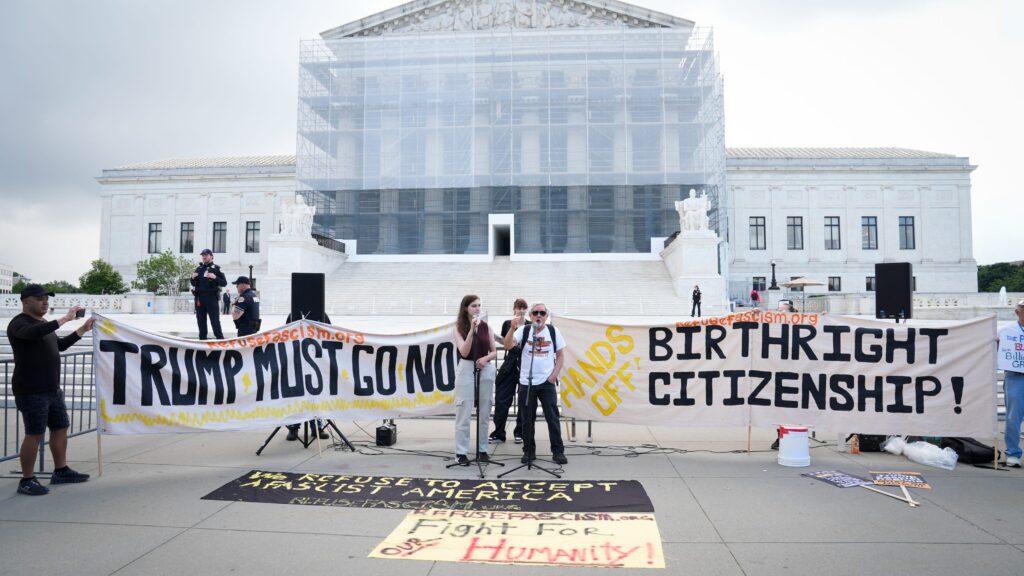The U.S. Supreme Court is set to hear arguments regarding President Donald Trump’s executive order aiming to restrict birthright citizenship. This marks a significant challenge to the constitutional right, sparking debate over the president’s approach to immigration. Trump’s directive sought to deny citizenship to children born in the U.S. unless one parent is an American citizen or lawful resident. However, federal judges have intervened, deeming the policy likely unconstitutional and preventing its enforcement.
The crux of the issue lies in the interpretation of the 14th Amendment, which guarantees citizenship to individuals born in the U.S. and subject to its jurisdiction. This principle has been reinforced by historical legal precedents, notably the 1898 case of United States v. Wong Kim Ark, establishing that children born on U.S. soil are entitled to citizenship regardless of their parents’ nationality.
The Trump administration’s stance challenges this interpretation, arguing that the amendment does not apply to certain immigrant groups, such as those in the country unlawfully or temporarily. Trump’s proposed clarification of birthright citizenship aims to exclude specific categories of individuals from automatic citizenship, aligning with his broader immigration policies.
Opposition to Trump’s order has been robust, with lawsuits led by Democratic state attorneys general and immigrant rights advocates contesting its constitutionality. These legal challenges emphasize the enduring significance of birthright citizenship as a fundamental right protected by the Constitution. The outcome of the Supreme Court’s deliberations will have far-reaching implications for the interpretation and application of this longstanding principle in American law.

